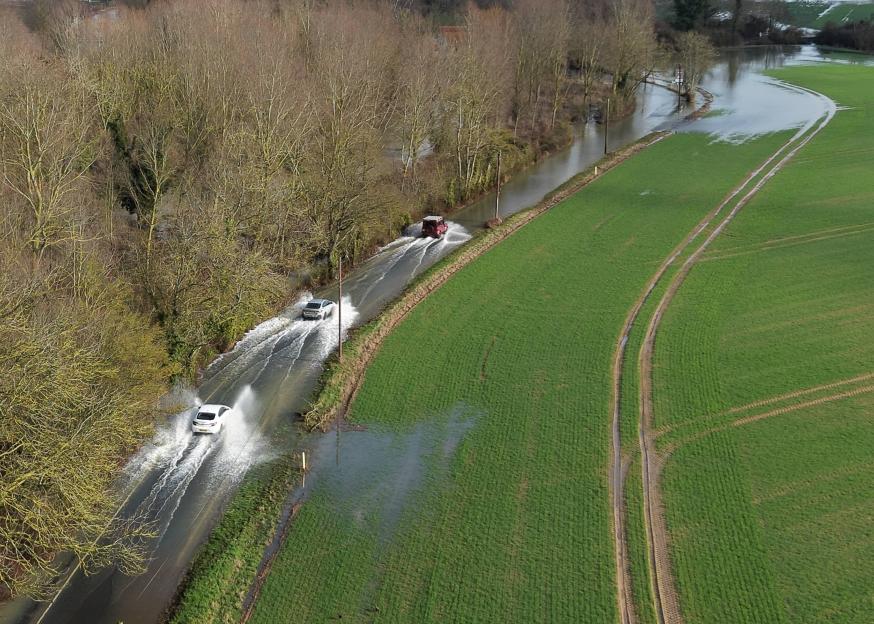BRITAIN’S acid attack capital is being terrorised by kids as young as 12 armed with Lucozade bottles full of skin-melting liquid, terrified locals have told The Sun.
Across the UK, attacks using noxious liquids are on the increase, with figures from a Freedom of Information Request to UK police forces revealing a 10 per cent rise across the board compared to last year.
 Dad Paul Laskey, 43, lost sight in his left eye after he was attacked with acid
Dad Paul Laskey, 43, lost sight in his left eye after he was attacked with acid
 One shopkeeper in the Byker area of Newcastle’s East End spoke of businesses that had been robbed by people threatening them with acid
One shopkeeper in the Byker area of Newcastle’s East End spoke of businesses that had been robbed by people threatening them with acid
However, the statistics are most alarming in areas covered by Northumbria Police – Northumberland and Tyne and Wear – which astonishingly accounted for a quarter of chemical attacks in the UK last year.
A prominent medic in Newcastle has warned of an alarming rise in the number of cases of young men being referred to him with eye injuries caused by acid attacks .
And in the city’s East End, locals say that acid is being used as a robbery weapon by youngsters who swoop around on bikes.
A shopkeeper in Byker told The Sun: “Acid has become the weapon of choice for young kids who think they are gangsters, it’s actually frightening.
“You see them every day riding around on their bikes and they’re carrying Lucozade bottle filled with acid.
“It’s a powerful acid, but they can buy it in DIY stores without being checked for a tenner and then they’ll share it out, filling their bottles.”
As part of the investigation, The Sun was able to buy a five-litre bottle of acid at a nearby DIY branch for just £13.
The shopkeeper added: “It doesn’t surprise me that there’s a rise in attacks because it’s easier than buying a knife, and the damage it can cause is frightening.
“I’m very wary now when I see kids coming in carrying bottles, and I know businesses who have been robbed by people threatening to swill them with acid.
“Some of these kids are only about 12. They’re too young to buy the acid – but old enough to use it.”
The safety label on the bottle we bought said that it contains hydrochloric acid and could be corrosive to metal, warning users to wear protective gloves and eye protection.
While there were no nearby warnings that buyers have to be over 18, the nationwide chain store does enforce an age limit.
The DIY giant signed up to a voluntary agreement in 2018 not to sell acid-based products to children.
Newcastle dad Paul Laskey, 43, was one of the 200 acid attack victims identified in Northumbria in 2023 and 2024, losing sight in his left eye.
Paul went out to protect his 16-year-old son, who had been robbed of his gold chain at knifepoint near the family home in West Denton, Newcastle.
When he encountered 21-year-old Robbie Scott and demanded the return of the chain, he was squirted with acid from a plastic bottle, causing agonising and catastrophic injuries.
It’s a horrific weapon to use on anyone, and it cost me my eye
Paul Laskey
Paul’s eye was saved using groundbreaking surgery by consultant ophthalmologist Prof Francisco Figueiredo at Newcastle’s Royal Victoria Infirmary – but he still lost his sight in it.
The acid corroded both the inner and outer layers of his cornea, but his eye was rebuilt using corneal transplants and three grafts of amnion, which is tissue from the inner lining of a donated placenta.
Paul said: “It’s frightening how many kids are running around Newcastle with acid in bottles, and something has to be done to stop it. They need to be brought to court faster and given bigger sentences for possessing it.
“I was squirted in the face with a mixture of battery acid and superglue. The glue was mixed in so that it would stick to the face to allow the acid to burn away the flesh.
“It’s a horrific weapon to use on anyone, and it cost me my eye.
 A shopkeeper told The Sun that acid has become the weapon of choice for young kids who think they are gangsters
A shopkeeper told The Sun that acid has become the weapon of choice for young kids who think they are gangsters
 Gail Spraggon, 64, said she was surprised that Northumbria accounted for so many of the UK’s acid attacks
Gail Spraggon, 64, said she was surprised that Northumbria accounted for so many of the UK’s acid attacks
 Chemical attacker Abdul Ezedi took his own life after carrying out an attack on a woman and two girls
Chemical attacker Abdul Ezedi took his own life after carrying out an attack on a woman and two girls
 Alan Spraggon, 93, has slammed acid attackers as ‘cowards’
Alan Spraggon, 93, has slammed acid attackers as ‘cowards’
“As soon as the liquid hit my face, I knew I was in trouble. I could feel it burning my eyes, my nose and my mouth, and I couldn’t breathe.
“All I could do was restrain him with an arm around his neck while he tried to spray me a second time. He was also flailing at me with a Rambo knife.
“At the time, I was told the trouble spots for acid attacks were the North East and in London – the police said in London, it was used to disfigure people, and up here, it is to hurt and threaten victims.
“It’s the most frightening thing I’ve ever encountered. I was in fear for my life, and I wouldn’t want anyone else to go through what I have suffered.”
There is still hope that Paul, a former doorman who now works on a university’s maintenance and estates team, might see through the eye.
The medical team that treated him will carry out stem cell injections in the hope of returning at least some of his sight.
 Student Izzy Brown, 19, recalled a shocking acid attack on her friend from a former boyfriend that led to nerve damage
Student Izzy Brown, 19, recalled a shocking acid attack on her friend from a former boyfriend that led to nerve damage
 George Beck, 61, feels kids are turning to using acid as they ‘want to be gangsters’
George Beck, 61, feels kids are turning to using acid as they ‘want to be gangsters’
 Student George Crundwell, 19, says it’s ‘scary’ to think there are people ‘walking around this city using acid as a weapon to rob people’
Student George Crundwell, 19, says it’s ‘scary’ to think there are people ‘walking around this city using acid as a weapon to rob people’
Britain’s most notorious chemical attack of recent years was carried out by Abdul Ezedi , who mixed the concoction in his flat off Shields Road in Byker before travelling with it to London to carry out an attack in Clapham.
Afghan asylum seeker Ezedi, 35, attacked his 31-year-old ex-partner and her two children with the alkaline solution, causing the woman life-changing injuries.
Ezedi himself was seriously injured in the incident and was found to have taken his own life by jumping into the Thames soon afterwards.
The attack is still fresh in the memory of people in Byker 18 months on.
Speaking yards from Ezedi’s former home, Northumbria University student Izzy Brown, 19, has had first-hand knowledge of the devastation of an acid attack.
She said: “A friend of mine suffered an acid attack from a former boyfriend after the break-up of a relationship about three years ago.
“It caused terrible damage to her skin, hitting her shoulder and arm, and also caused some nerve damage. Thankfully, it didn’t hit her in the face, or the outcome would have been even worse.
“It’s such a cowardly thing to do to another person. I can’t imagine what goes through someone’s mind to think that they want to disfigure someone for life because they feel rejected.
“It’s worrying to hear that acid attacks have become so common in this part of the world. I know how devastating it can be for the victims.
“It needs to be treated as seriously as carrying a knife because the results can be just as bad.
“My friend is recovering but has been left with scarring, and she’ll carry the memory all her life.”
What to do in an acid attack: How to immediately help victims
ACID attacks can cause catastrophic injuries and victims require urgent medical attention.
But would you know what to do if you found yourself caught up in an incident? Here’s the lowdown .
Before you do anything else, call 999 and ask for urgent help .
Then, the most important thing you can do to prevent serious injuries is to carefully remove the chemical and any contaminated clothing and jewellery, according to the NHS .
You can do this by peeling back any items from the skin and eyes, while taking care not to touch or spread the chemical.
Use gloves or other protective materials to cover your hands where possible, and use scissors to cut clothing instead of pulling it over someone’s head.
If the chemical is dry, brush it off the skin using another item.
After that, rinse the affected area with as much clean water as possible. Do not use a wet cloth.
The water will dilute the acid, so it’s important to keep refreshing with new, clean water.
You should stay on the phone to emergency services until the ambulance arrives and follow any advice the call handler gives.
Once in hospital, an acid attack victim should receive immediate treatment.
This could be in the form of continuous washing, cleaning the burn and covering it with an appropriate dressing, pain relief, and a tetanus jab if necessary.
Minor burns, which affect the outer layer of skin and some of the underlying tissue, normally heal with good, ongoing burn care.
But people with severe burns may be referred to a specialist burns unit for surgery and skin grafts .
These kinds of injuries can take years to fully heal, and can leave people scarred for life.
It can be easy to rush to conclusions when trying to help someone who is in agony.
But don’t act without thinking following an acid attack or it could make matters worse, experts warn.
You may think that something like milk could act as a soothing remedy for an acid burn, but it’s a bad idea.
Milk is generally alkaline, but when it comes into contact with acid it causes an exothermic reaction, which creates more heat and can do more damage.
Plus, milk can increase the risk of infection.
Stick to running water – and lots of it.
You should also protect yourself, as well as the victim, to avoid becoming a secondary victim .
Wear gloves and protective clothing where possible.
Dr Adrian Boyle, from the Royal College of Emergency Medicine, told The Sun: “It is vital to get across that people don’t become secondary victims.
“If you see someone exposed to acid, don’t try to brush it off with your hands, or you’ll end up burned yourself.
“If the substance is in powder form just brush it off, using a piece of clothing to protect your skin.”
And it’s not just acidic liquids that are used in corrosive substance attacks – very alkaline substances can be used too.
Dr Boyle added: “Alkaline powders that get wet can suddenly start to react.”
His three-step plan is to, first and foremost, avoid becoming a secondary victim, call for help and dial 999.
If water is available, use it to dilute the acid.
Shoemaker George Beck, 61, said: “Anyone who throws acid at another person for any reason is a coward.
“In my day, people used to fight with their fists if they had a disagreement; now kids will resort to anything because they want to be gangsters.
“It was terrible that Azedi, a guy given a place to live in Newcastle, went and attacked that young woman in London. It was a horrendous crime .
“For a man to attack a woman that way, especially in front of young children, was just unforgivable, and it’s terrible to think he planned the whole thing just a few yards from here.”
Student George Crundwell, 19, said: “It is scary to think there are people walking around this city using acid as a weapon to rob people.
“Attacking someone with acid is such an up-close and personal way of injuring someone. I’ve always thought of it as a crime committed by someone who knows their victim.
“It’s a terrible way of taking revenge on a person, to try to scar them with acid.”
Gail Spraggon, 64, said: “I’m surprised by the figures for Northumbria, it’s a worrying thing to hear.
“But to have acid used as a weapon to threaten people is just another thing to be concerned about when there are already all kinds of violent crimes.”
Melted eyeballs and mutilated faces… inside terrifying acid attack ‘arms race’ after surge in chilling assaults
IT was an act of violent brutality that sickened the nation.
Just days into the new year in 2024, Abdul Ezedi travelled down from Newcastle to target his ex-partner, aged 31, and her two children, aged eight and three, dousing them with chemicals before fleeing the scene.
But worryingly, the monstrous incident in Clapham, South London – which left a total of 12 people injured – has proved far from an isolated case.
Recent figures show attacks and other offences involving corrosive substances rose by a terrifying 75 per cent last year, with only eight per cent of attacks led to someone being charged.
Now, after two pupils and a teacher were hospitalised this week following a chilling acid attack outside a school, fears are growing that the UK could see a return to the horrors of the previous crime wave that sparked terror across the nation.
And as gangs snap up ever bigger ‘zombie’ knives to fend off rivals, experts have warned of an ‘arms race’ for grisly substances as thugs seek to gain the upper hand.
Dr Simon Harding, a professor in criminology and sociology at St Mary’s University Twickenham, describes the upswing in acid attack cases as “very worrying.”
“It’s always been part of the weaponry or the repertoire of people with criminal intent,” he tells The Sun.
“Those who feel aggrieved, those who want to seek revenge, those who want to take violent action against somebody else.
“But it is a particularly despicable weapon to choose.
“I’m certainly hoping we don’t see a repeat of 2017-2018, which we could even call the summer of acid attacks. It was quite dreadful.”
Figures obtained through freedom of information requests to police forces show that 1,244 offences were recorded in 2023, compared with 710 from the year before, a rise of 75 per cent. It follows a 69 per cent rise recorded for the year before.
Her dad, Alan Spraggon, 93, said: “Anyone who attacks another person with acid is a coward, especially if that person is a woman.”
Acid Survivors Trust International (ASTI) carried out an analysis which showed 498 physical attacks involving corrosive substances were recorded in 2024 – compared with 454 in the previous year.
In 2023, Northumbria Police and the Metropolitan Police recorded the highest number of physical attacks – 18% and 16% respectively.
While figures in 2024 showed a large fall in attacks in London – dropping by 78% – cases in Northumbria rose substantially.
Attacks in the force area accounted for 25% of those across the country, despite the area making up just 2% of the population.
ASTI executive director Jaf Shah said: “In Northumbria, we’ve seen a 49% increase to 121 attacks, so there’s a massive disparity in terms of numbers, especially relative to population figures for each of those corresponding areas. So this is obviously a very worrying trend.
“Professor Francisco Figueiredo, who is head of ophthalmology at Newcastle University, certainly picked up on an increase in young men receiving treatment with corrosive injuries in the eye.
“A lot of the injuries he’s treated are related to the use of ammonia, which is quite different to some of the attacks we’ve seen in other parts of the UK where sulphuric acid is commonly used.”
Northumbria Police say that there were 96 recorded attacks where a corrosive substance was found to have been used in the force area in 2024, a fall of six per cent on the previous year.
Another 25 incidents were recorded where it was suspected that a corrosive substance was used.
Superintendent Scott Cowie, Northumbria Police’s Serious Violence lead, said: “We take each and every report of a corrosive substance attack seriously.
“We will always strive to do everything we can to identify the perpetrators of these offences and ultimately bring them to justice.
“In conjunction with our partners, we also carry out education and engagement activity across our Force area to educate young people about the dangers of becoming involved in serious violence.
“To anyone who is a victim of such an attack, please contact us so that we can take the appropriate action.
“To report an incident which has previously happened, you can send us a direct message on social media or use the live chat or report forms on our Force website.
“For those unable to make contact via those ways, call 101.
“Where an incident is happening, you should call 999.”







